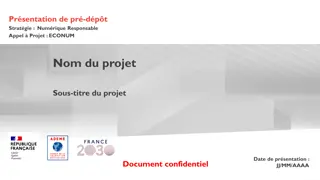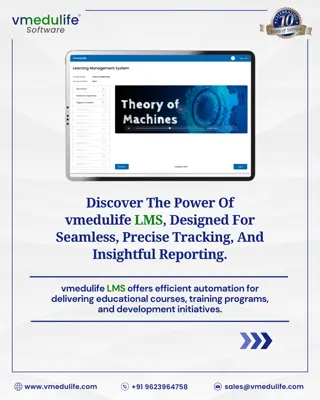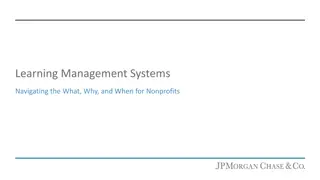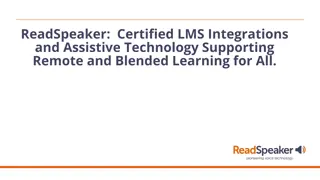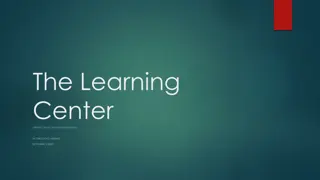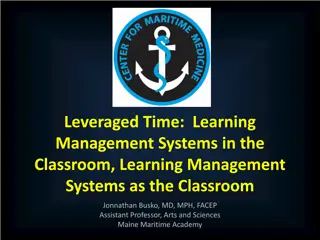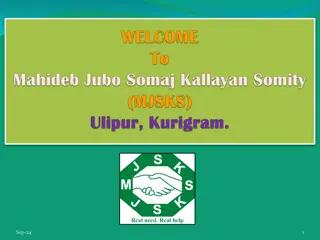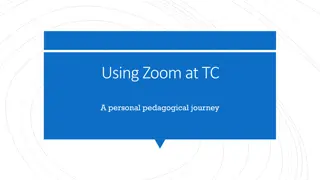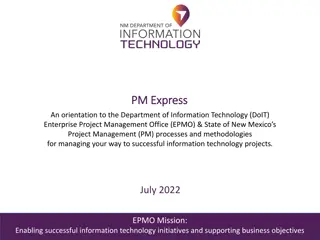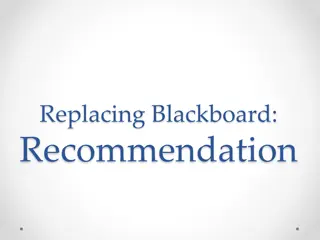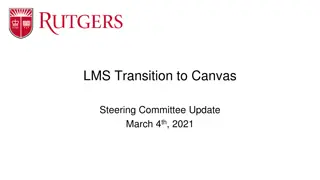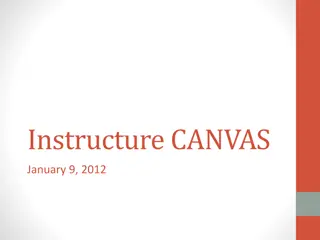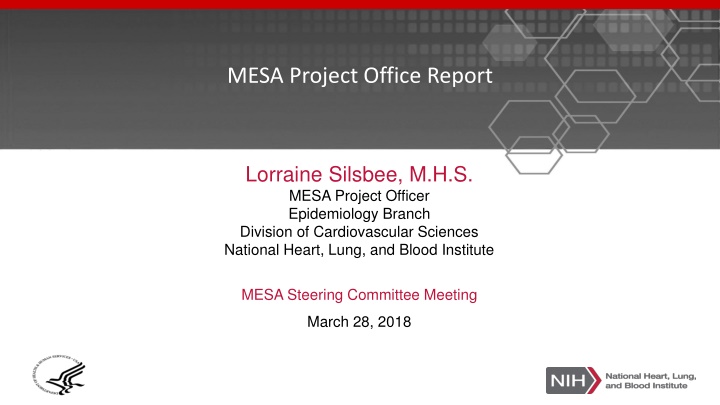
Cardiovascular Sciences and Research Organization Overview
Explore the structure and key personnel within the National Heart, Lung, and Blood Institute's Division of Cardiovascular Sciences and its associated branches. Learn about the roles of project officers, scientists, geneticists, biostatisticians, and contracting officers in supporting research initiatives and steering committees. Gain insights into the leadership team and the focus areas of the institute's epidemiology, vascular biology, hypertension, and cardiac research branches.
Download Presentation

Please find below an Image/Link to download the presentation.
The content on the website is provided AS IS for your information and personal use only. It may not be sold, licensed, or shared on other websites without obtaining consent from the author. If you encounter any issues during the download, it is possible that the publisher has removed the file from their server.
You are allowed to download the files provided on this website for personal or commercial use, subject to the condition that they are used lawfully. All files are the property of their respective owners.
The content on the website is provided AS IS for your information and personal use only. It may not be sold, licensed, or shared on other websites without obtaining consent from the author.
E N D
Presentation Transcript
MESA Project Office Report Lorraine Silsbee, M.H.S. MESA Project Officer Epidemiology Branch Division of Cardiovascular Sciences National Heart, Lung, and Blood Institute MESA Steering Committee Meeting March 28, 2018
NHLBI MESA Team Project Office Lorraine Silsbee, M.H.S. Project Officer Pothur Srinivas, Ph.D. Project Scientist, Acting Branch Chief George Papanicolaou, Ph.D. Research Geneticist Colin Wu - Biostatistician Jean Olson, M.D. Scientific Consultant Contracting Office Mark Brady Contracting Officer Cornelius Moore Contracting Officer
NHLBI Organization Gary Gibbons, MD Robert Balaban, PhD Keith Hoots, PhD Jim Kiley, PhD David Goff, MD, PhD Kathleen O Sullivan Laura Moen, PhD George Mensah, MD Lenora Johnson, DrPH, MPH
DCVS Organization Office of the Directo David Goff, MD, PhD, Director Office of the Director Office of Research Training and Career Development Jane Scott, ScD Director Office of Research Training and Career Development Office of Biostatistics Research Nancy Geller, PhD Director Office of Biostatistics Research Office of Clinical Research Gail Pearson, MD, ScD Director Office of Clinical Research Scientific Program Offices Basic and Early Translational Research Denis Buxton, PhD Director Basic and Early Translational Research Adult and Pediatric Cardiac Research Gail Pearson, MD, ScD Director Adult and Pediatric Cardiac Research Prevention and Population Sciences Prevention and Population Sciences Gina Wei, MD, MPH Director Epidemiology Branch Epidemiology Branch Vascular Biology and Hypertension Branch Vascular Biology and Hypertension Branch Advanced Technologies and Surgery Branch Advanced Technologies and Surgery Branch Atherothrombosis and Coronary Artery Disease Branch Atherothrombosis and Coronary Artery Disease Branch Heart Heart Heart Failure and Arrhythmias Branch Heart Failure and Arrhythmias Branch Clinical Applications and Prevention Branch Clinical Applications and Prevention Branch Development and Structural Diseases Branch Development and Structural Diseases Branch Pothur Srinivas, PhD Acting Chief Sean Coady, MS Acting Deputy Chief Zorina Galis, PhD Chief Marissa Miller, DVM Chief Yves Rosenberg, MD, MPH Chief Renee Wong, PhD Acting Chief Larry Fine, MD, DrPH Chief Jonathan Kaltman, MD Chief Jared Reis, PhD Acting Deputy Chief Charlotte Pratt, PhD Acting Deputy Chief
FY2018 NHLBI Funding Paylines Grant Program Percentile Priority Score Description R01 15 N/A Research Project Grant ESI 25 N/A Early Stage Investigators K awards N/A 32 Career Dev t Awards *Depending on the availability of funds, the Institute will make funding decisions on competing applications outside of the pay range, through selective pay actions. **Next NHLBI Advisory Council meeting is June 12, 2018. http://www.nhlbi.nih.gov/research/funding/general/current-operating- guidelines
FY2018 NHLBI Funding Paylines Zones of Consideration* Grant Program Description Zone of Consideration (priority score) 10-30 P01 Program Project Grant T32, T35 Institutional NRSA Training 10-30 *A zone of consideration is a range of priority scores within which competing applications will be considered for funding. http://www.nhlbi.nih.gov/research/funding/general/current-operating- guidelines
NHLBI Strategic Vision NHLBI Strategic Vision Working Groups: Enhancing resilience Reducing burden of heart failure Eliminating hypertension-related CVD Preventing vascular dementia Addressing social determinants of CV health and health disparities Promoting CV health/preventing CVD across the lifespan https://www.nhlbi.nih.gov/about/strategic-vision
NHLBI Strategic Vision NHLBI Strategic Vision Working Groups: Enhancing resilience To explore the diverse set of cues that affect the physiologic processes, such as the immune and metabolic systems, responsible for the biochemical tolerance and protection from subsequent cardiovascular disease Reducing burden of heart failure To develop an implementation plan and timeline to guide future Heart Failure research Eliminating hypertension-related CVD To explore the pathophysiology and intervention strategies across the lifespan in diverse populations
NHLBI Strategic Vision NHLBI Strategic Vision Working Groups: Preventing vascular dementia To identify research priorities within NHLBI s mission in the next 5-10 years on vascular contributions to cognitive impairment and dementia Addressing social determinants of CV health and health disparities To develop a roadmap with short, medium and long- term goals related to understanding the contribution of social determinants of health to inequities in heart, lung, blood, and sleep (HLBS) diseases and disorders Promoting CV health/preventing CVD across the lifespan To understand the biological underpinnings and predictors of cardiovascular health in early childhood, adolescence and across the lifespan
NHLBI Diversity Supplements - Purpose Increase diversity in the research workforce Improve training opportunities Expand the quality of the educational and training environment Balance and broaden the perspective in setting research priorities Increase recruitment of human subjects from diverse backgrounds into clinical research programs
Diversity Supplements Support Available for: High school students Undergraduate students Post baccalaureate/Post master s Graduate Students Medical Students Post-doctoral level individuals Junior faculty (within 24 months of appointment)
Diversity Supplements - Eligibility Principal investigators with currently eligible NHLBI supported grants/contracts may apply on behalf of the candidate Candidates must be US citizens or noncitizen nationals or permanent residents of the US Individual must be from an underrepresented group in biomedical research
NHLBI Diversity Supplements Key Features Logical extension of parent grant or contract (complements but does not duplicate aims) Mentoring Some support for supplies/travel
NHLBI Diversity Supplement Guidelines NHLBI Guidelines: https://www.nhlbi.nih.gov/grants-and-training/training-and- career-development/nhlbi-research-supplement- application-guidelines Notes: The Diversity Supplement Program is Institute specific. Check with the Institute that supports your research. Supplement cannot exceed the end date of your grant/contract.
MESA Publications through 2017 1400 1200 1000 800 600 400 200 0 2002 2003 2004 2005 2006 2007 2008 2009 2010 2011 2012 2013 2014 2015 2016 2017 New Pub Cumulative Pub.

